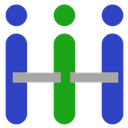Executive Secretary

Simposio Internacional “Desarrollo Humano, Equidad y Justicia Social"
Public policies are government instruments that seek to achieve social and economic objectives by guiding the behavior of agents. Structure of organization, public management and its instruments are based on theories of change in human behavior, which are conditioned by the epistemological, ideological and technological contexts. It is postulated that the policy management models developed by the dominant industries in a given context are transferred with certain adaptations to the public sector. The objective is, first, to account for these contexts, their changes, and their consequences on the administration and public policies during the 20th century. Second, current context changes are analyzed and their consequences on public management and on the conception and instruments of public policies are observed. In this way, the relations between Taylorism, modern bureaucracy and authoritarian public policies (use of the monopoly of legitimate force), on the one hand, and between neoliberalism, New Public Management and inciting public policies of neo-institutional type (orientations by market forces), on the other hand. Then, the presentation will focus on analyzing contemporary changes in management and public policies induced by the dominance of digital industries, Google in particular. To conclude, the variations in the theories of change that guide policies are discussed.
Las políticas públicas son instrumentos de gobierno que pretenden lograr objetivos sociales y económicos orientando el comportamiento de los agentes. La estructura de la organización, la gestión pública y sus instrumentos se fundamentan sobre teorías del cambio de la conducta humana, las cuales están condicionadas por los contextos epistemológico, ideológico y tecnológico. Se postula que los modelos de gestión de políticas desarrollados por las industrias dominantes en un contexto dado se trasladan con ciertas adaptaciones al sector público. El objetivo es, en primer lugar, dar cuenta de estos contextos, de sus cambios, y sus consecuencias sobre la administración y las políticas públicas durante el siglo XX. En segundo lugar, se analiza los cambios actuales de contexto y se observan sus consecuencias sobre la gestión pública y sobre la concepción y los instrumentos de las políticas públicas. De este modo, se presentarán inicialmente las relaciones entre taylorismo y burocracia moderna y políticas públicas autoritarias (uso del monopolio de la fuerza legítima), por una parte, y entre neoliberalismo y Nueva Gestión Pública y políticas públicas incitativas de tipo neo-institucionales (orientaciones por las fuerzas del mercado), por otra parte. Luego, la ponencia se centra en analizar los cambios contemporáneos en la gestión y las políticas públicas inducidos por la predominancia de las industrias digitales, Google en particular. Para concluir, se discuten las variaciones en las teorías del cambio que orientan a las políticas.
About The Speaker

Prof. andre noel roth
